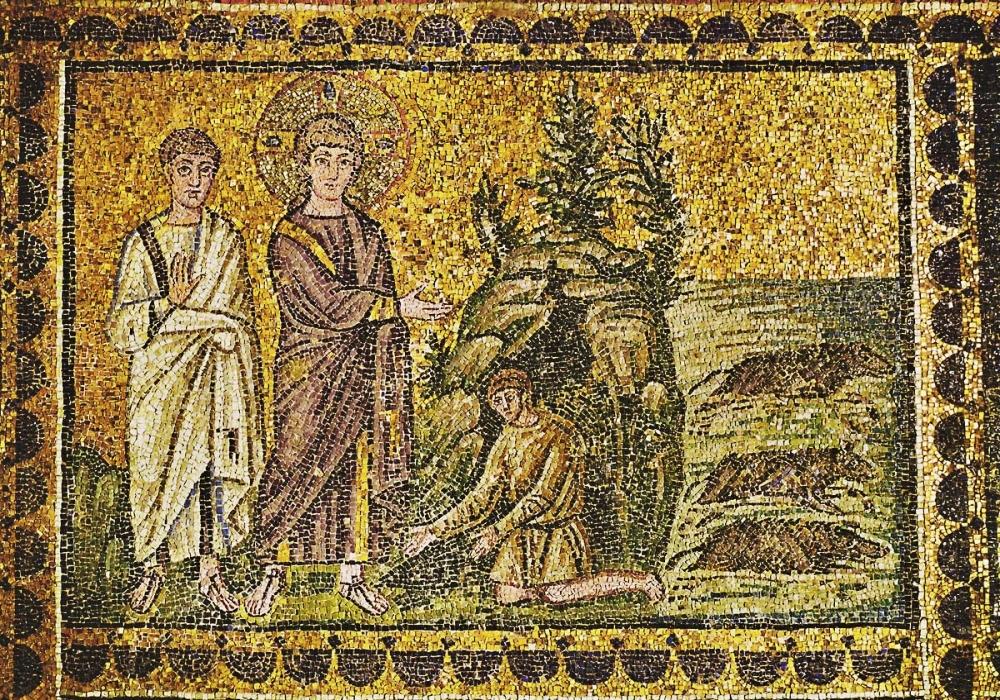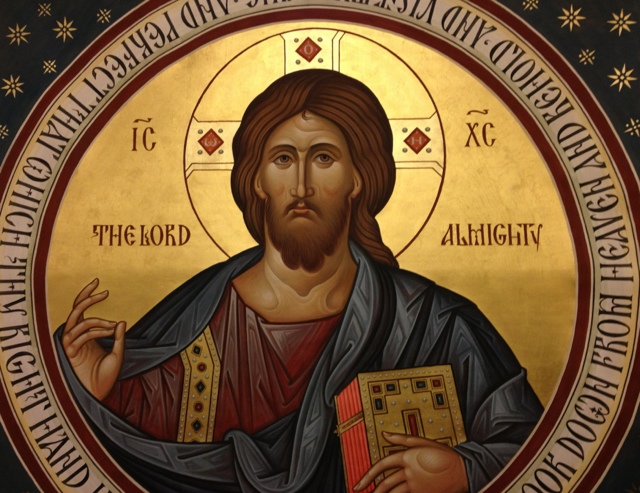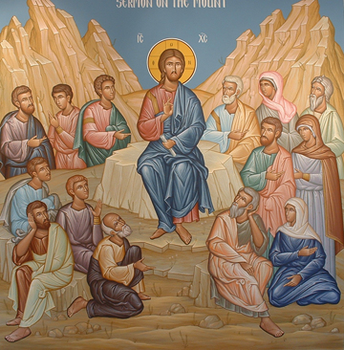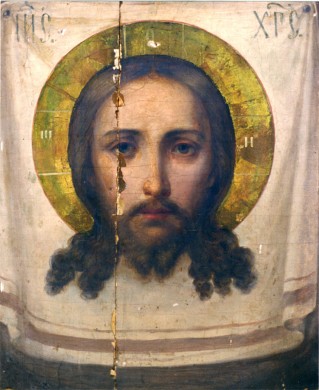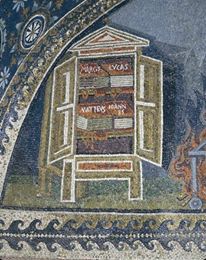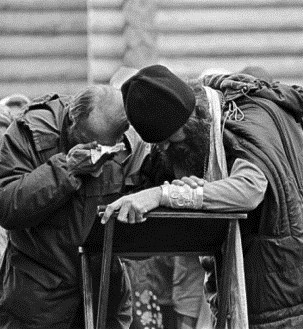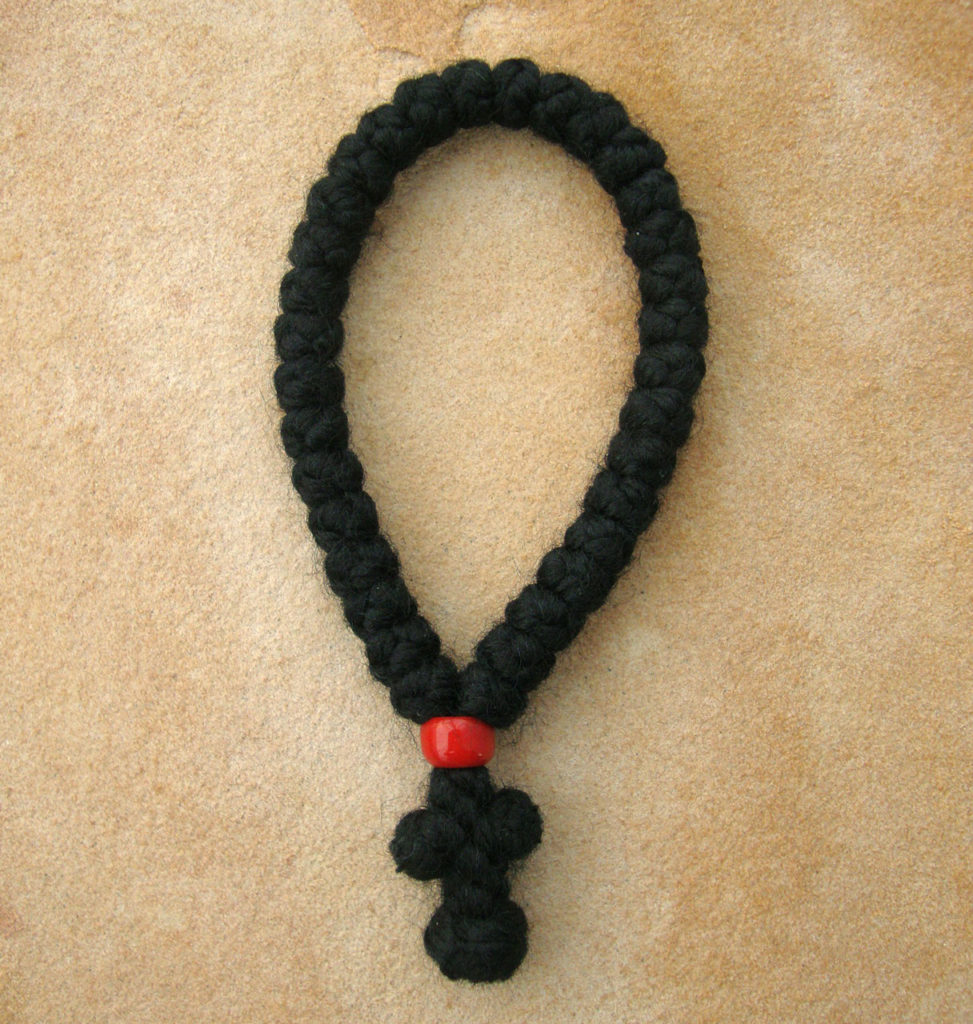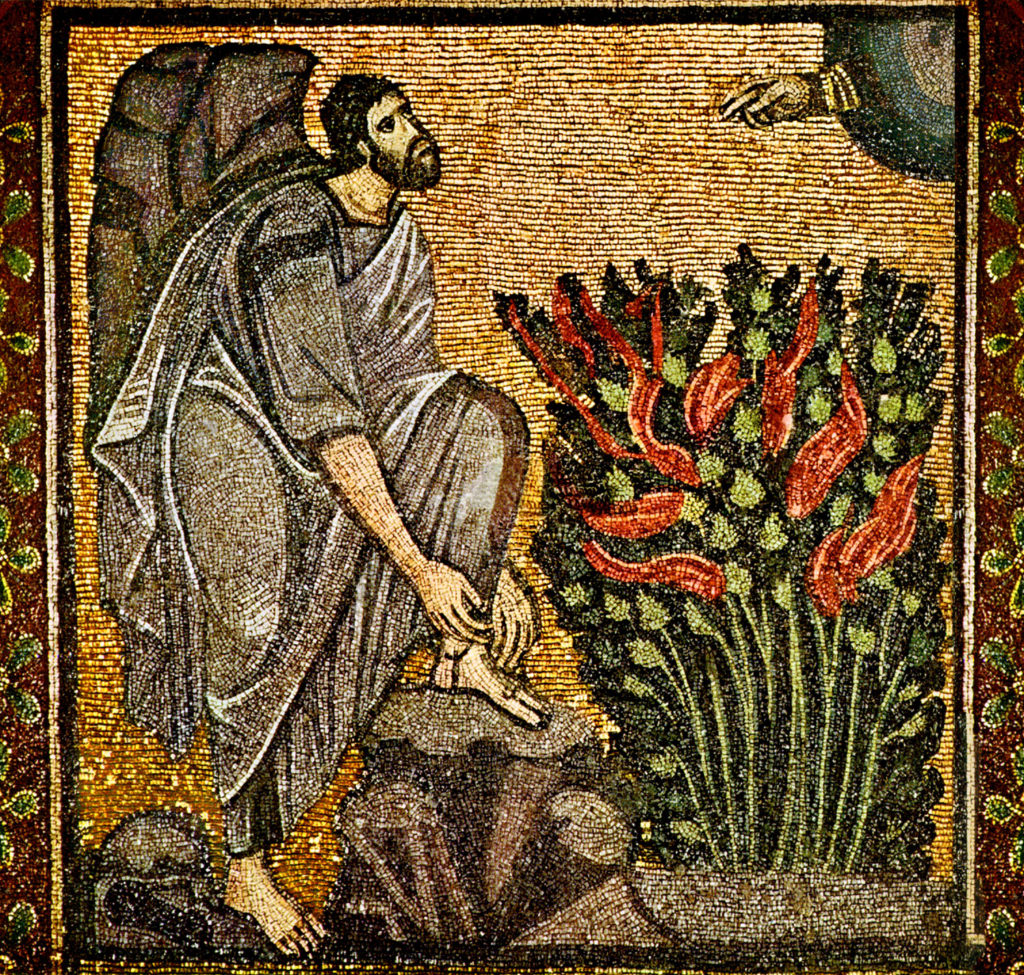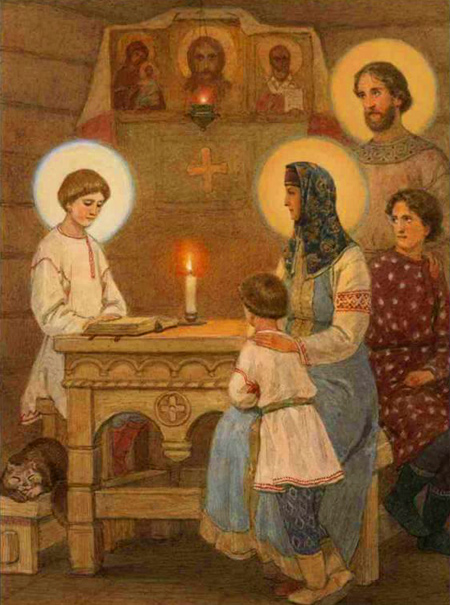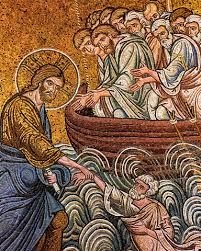Thursday of the 14th week of Matthew
You can listen to an audio podcast of this post at https://www.spreaker.com/user/youngfaithradio/matt14thurs
In today’s Gospel, the Lord casts a legion of demons out of the Gadarene demoniac.
And they came over unto the other side of the sea, into the country of the Gadarenes. And when he was come out of the ship, immediately there met him out of the tombs a man with an unclean spirit, Who had his dwelling among the tombs; and no man could bind him, no, not with chains: Because that he had been often bound with fetters and chains, and the chains had been plucked asunder by him, and the fetters broken in pieces: neither could any man tame him. And always, night and day, he was in the mountains, and in the tombs, crying, and cutting himself with stones. But when he saw Jesus afar off, he ran and worshipped him, And cried with a loud voice, and said, What have I to do with thee, Jesus, thou Son of the most high God? I adjure thee by God, that thou torment me not. For he said unto him, Come out of the man, thou unclean spirit. And he asked him, What is thy name? And he answered, saying, My name is Legion: for we are many. And he besought him much that he would not send them away out of the country. Now there was there nigh unto the mountains a great herd of swine feeding. And all the devils besought him, saying, Send us into the swine, that we may enter into them. And forthwith Jesus gave them leave. And the unclean spirits went out, and entered into the swine: and the herd ran violently down a steep place into the sea, (they were about two thousand;) and were choked in the sea. And they that fed the swine fled, and told it in the city, and in the country. And they went out to see what it was that was done. And they come to Jesus, and see him that was possessed with the devil, and had the legion, sitting, and clothed, and in his right mind: and they were afraid. And they that saw it told them how it befell to him that was possessed with the devil, and also concerning the swine. And they began to pray him to depart out of their coasts. And when he was come into the ship, he that had been possessed with the devil prayed him that he might be with him. Howbeit Jesus suffered him not, but saith unto him, Go home to thy friends, and tell them how great things the Lord hath done for thee, and hath had compassion on thee. And he departed, and began to publish in Decapolis how great things Jesus had done for him: and all men did marvel. – Mark 5: 1-20
A legion in the Roman army numbered 6,000 men. This man’s being possessed by a legion of demons means, therefore, that there were thousands of demons inside of him. How could this be? St. Theophan the Recluse explains:
“My name is Legion: for we are many (Mark 5:9).” Spirits are bodiless, and therefore they do not fill or take up space like bodies. This explains why it is physically possible for many spirits to reside in one person. That it is possible morally for spirits to do this is understandable from their amorality or their absence of all moral principles. That it is possible for people is understandable from their many-sided contact with the dark realm of the unclean powers, due to the way people’s souls are ordered. But this only explains what is possible; the reality of demonic possession is subject to conditions which we do not have the ability to determine. We can only say that spirits do not always enter in a visible way, and possession is not always demonstrated through the possessed person’s actions. There is an unseen, hidden demonic possession. There is also a power of spirits over minds, apart from the body, when the demons lead them wherever they wish, through the passions working in them. People think that they are acting themselves, but they are actually the laughingstocks of unclean powers. What can we do? Be a true Christian, and no enemy power shall overcome you. – Thoughts for Each Day of the Year, pp. 186-187
Apart from the power of true Faith and Baptism, man has always been prey to his passions and to demonic influence working through his passions and sometimes even possessing him bodily. During the long period of the Church’s direct or indirect influence on society, however, the demonic influence was kept in check. Now, at the end of over 200 years of open apostasy by the formerly Christian nations, all the world is engulfed in a tide of demonism, and, humanly speaking, there is no end in sight. We need not fear it, for we belong to Christ. But we need to be vigilant and to take action. We do not throw ourselves off a cliff and ask angels to catch us.
It is critical, indeed a matter of spiritual (and perhaps physical) life and death, to cut out demonic influences in our lives and the lives of those for whom we are responsible, chiefly our children. It is not an exaggeration to say that demonic mental programming, either overt or hidden, pervades contemporary movies, television (including what is called “the news,” which is simply the propaganda of the anti-Christian elite), and video games in the form of hypnotically powerful imagery, words, and ritual actions. That there may be innocent productions coming out today is a possibility – I hope a probability – but sifting through the pile of toxic waste to find something that will not kill you is a time-consuming and risky process. Are there not better things to do with our time? If something is not obviously helpful or at least harmless, then just cut it out.
And what about the Internet? Here I am, using it, to get this message across. The answer is simple – use it as a tool, for a limited time each day, but do not live in it as an alternate universe. If it gives you access to good things – good books, good articles, good videos – great! Thank God we now have such access to many good things that were previously unavailable. But, as we all know, one has to practice enormous discipline and discernment. Keep track of your time on the Internet for a few days: How many hours did you spend on useless activity, when you could have been doing something else? How many temptations arose? If there were x number of obvious temptations, how many subliminal or unnoticed ones also entered your mind? Who knows? Be careful. I suggest keeping an icon right there in front of you while you are on your “device” (of whatever kind), and always saying a prayer before you turn it on. I have not yet seen a prayer in the Book of Needs for blessing computers and cellphones, but we certainly should have one that includes an explicit exorcism. Someone should suggest to our Church authorities that they commission someone to compose it.
As for children: Children do not need and will be harmed, often permanently, by video games, television, the computer, and the smartphone. Be strict. You will save their minds. They will probably have to use computers when they grow older, of course. They can learn what they need to know to get started when they are teenagers, in about fifteen minutes. If your children go to the government schools, or even private schools, that are replacing the book with the screen, take them out. They are being programmed, not educated.
As for living inside one’s smartphone all day – this is psychic, not to mention spiritual, suicide.
The good news is that, apart from what our duties force us to, we simply do not need all this stuff. There are precious and few hours in the day. The time we do not have to spend at inescapable work demanding Internet use should be spent in wholesome activity: prayer with the family, reading good books both spiritual and secular, singing good songs both spiritual and secular, taking walks, growing vegetables and taking care of animals, working around the house, and on and on. There was a long list of good things our very recent ancestors spent their time on, that had nothing whatsoever to do with television, radio, video games, professional sports, social media, or the popular music industry. Nearly all of these authentically human activities, in some form, are still available to us.
The further and ultimate Good News is that we are not the hopeless, helpless slaves of this dystopian anti-Paradise, this prison of the mind, this mindless hive of contented monkey-descended sensualists, being constructed before our very eyes at this very moment in history by the visible and invisible rulers of the satanic world-state. We are children of God, citizens of the Heavenly Jerusalem, and members of the Body of Christ. By Faith and Baptism, we have been freed forever from service to Satan, whom we renounced at Holy Baptism, along with “…all his works, all his service, and all his pride.”
“Alright, I agree with you,” you might be thinking. “But what can I do? I am already enmeshed in x, y, or z you have just described.”
I shall respond with what St. Theophan says above: “What can we do? Be a true Christian, and no enemy power can overcome you.” If we are really orthodox Christians (and not just “Orthodox Christians” as a brand name), and we live it, we will spend a lot of time in prayer, in good works for others, and useful occupations. We will prefer to use our leisure time in wholesome reading and wholesome hobbies, or driving old ladies to the grocery store, or teaching a child to read, or visiting the sick, or helping a priest start a new mission, or teaching catechism at our parish, or starting a spiritual book discussion group for our friends…or…or – you know the list is endless. If you do not have the strength to give up this or that, or to re-order your priorities, confess it with tears and do not justify it, and keep praying for the strength to change. The Lord desires our conversion and salvation more than we do.
Do not overthink this and postpone getting started. Make the Sign of the Cross and charge ahead.
